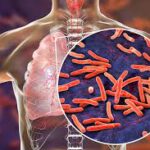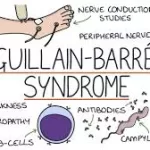Study Reveals a Direct Link Between Low Magnesium and Increased DNA Damage, Raising Risk of Chronic Conditions
A recent study published in the European Journal of Nutrition underscores the significance of maintaining adequate magnesium levels for overall health. Researchers from the University of South Australia have found a strong association between low magnesium levels and an increased risk of developing chronic degenerative diseases. Their findings suggest that insufficient magnesium can enhance DNA damage, heightening the likelihood of serious health issues, including Alzheimer’s, Parkinson’s, gastrointestinal diseases, various cancers, and diabetes.
Magnesium, the fourth most abundant mineral in the human body, plays a crucial role in more than 600 enzyme processes and is vital for activating nearly 200 others essential for bodily functions. However, despite its importance, magnesium deficiencies remain common, especially in middle-aged adults.
The study tested blood samples from 172 participants, revealing that individuals with lower magnesium levels exhibited higher levels of homocysteine, a harmful amino acid that can damage DNA. This combination, researchers suggest, creates a dangerous biochemical environment in the body, making individuals more vulnerable to developing chronic conditions.
The study also found that magnesium-rich foods, such as whole grains, dark leafy vegetables, nuts, beans, and dark chocolate, can help mitigate this risk by aiding in energy production, supporting bone and teeth health, controlling blood sugar and pressure, and ensuring proper heart, muscle, and kidney function.
Researchers determined that magnesium levels below 18 mg/L in the blood were directly linked to significant DNA damage, even when accounting for factors such as age and gender. This suggests that daily magnesium intake lower than 300 mg could increase the risk of chronic diseases, though the full scope of magnesium’s role in preventing DNA damage had not been explored in humans until now.
Disclaimer: The findings of this study are based on observational data and may not imply a cause-and-effect relationship. While magnesium is vital for health, further research is needed to confirm its specific role in preventing DNA damage and chronic diseases. Always consult with a healthcare professional before making significant changes to your diet or supplementation routine.











